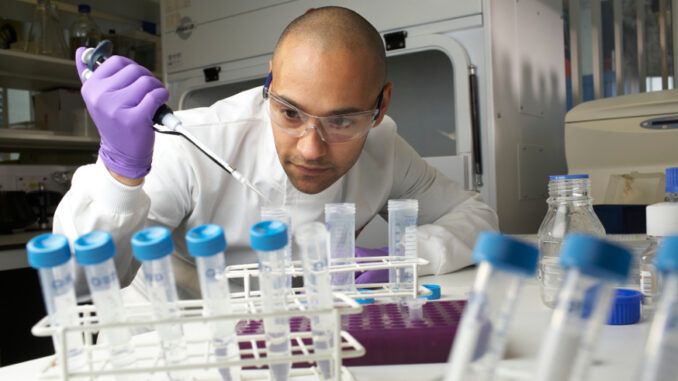
Scientists have made a historic breakthrough in their quest to cure cancer after finding the disease’s “Achilles’ heel.”
The study, conducted by researchers at the University of British Columbia, uncovered a protein that fuels tumors when oxygen levels are low. It enables cancers to grow, adapt, and become more deadly.
The enzyme, called CAIX (Carbonic Anhydrase IX), helps cancerous cells spread to other organs. It could hold the key to new treatments for various forms of cancer, including breast, pancreatic, lungs, bowel, and prostate cancers.

BYPASS THE CENSORS
Sign up to get unfiltered news delivered straight to your inbox.
You can unsubscribe any time. By subscribing you agree to our Terms of Use
“Cancer cells depend on the CAIX enzyme to survive, which ultimately makes it their ‘Achilles heel.’ By inhibiting its activity, we can effectively stop the cells from growing,” study senior author Professor Shoukat Dedhar stated in a university release.
The findings, published in the journal Science Advances, will help researchers develop drugs that could cure cancer.
Studyfinds.org reports: As the tumors advance, the blood vessels are unable to provide enough oxygen to every part. Over time, the low-oxygen environment leads to a buildup of acid inside the cells. They overcome the stress by unleashing proteins, or enzymes, that neutralize the acidic conditions.
This process is behind the spread, or metastasis, of cancer cells to other organs — which is what can kill patients. Finding a way to prevent cancer from metastasizing is the “Holy Grail” of cancer research. One of the enzymes which appears to do this is CAIX.
The Canadian team previously identified a unique compound known as SLC-0111 as a powerful inhibitor. It is currently being tested in clinical trials. Experiments in mice with breast, pancreatic, and brain cancers revealed its effectiveness.
The compound suppressed tumor growth and spread, although there were side-effects, with other cellular properties diminished. Now, the researchers have demonstrated other weaknesses in CAIX using a technique called genome-wide synthetic lethal screening. The powerful tool systematically deletes one gene at a time to determine if a cancer cell can be killed by eliminating the enzyme.
Surprisingly, results pointed to an unexpected role of proteins and processes that control a form of cell death called ferroptosis. This process happens when iron builds up and weakens a tumor’s metabolism and cell membranes.
“We now know that the CAIX enzyme blocks cancer cells from dying as a result of ferroptosis,” Dr. Dedhar adds. “Combining inhibitors of CAIX, including SLC-0111, with compounds known to bring about ferroptosis results in catastrophic cell death and debilitates tumor growth.”
A large international effort is currently underway to identify drugs that induce ferroptosis. The study is a major step forward in this quest.


